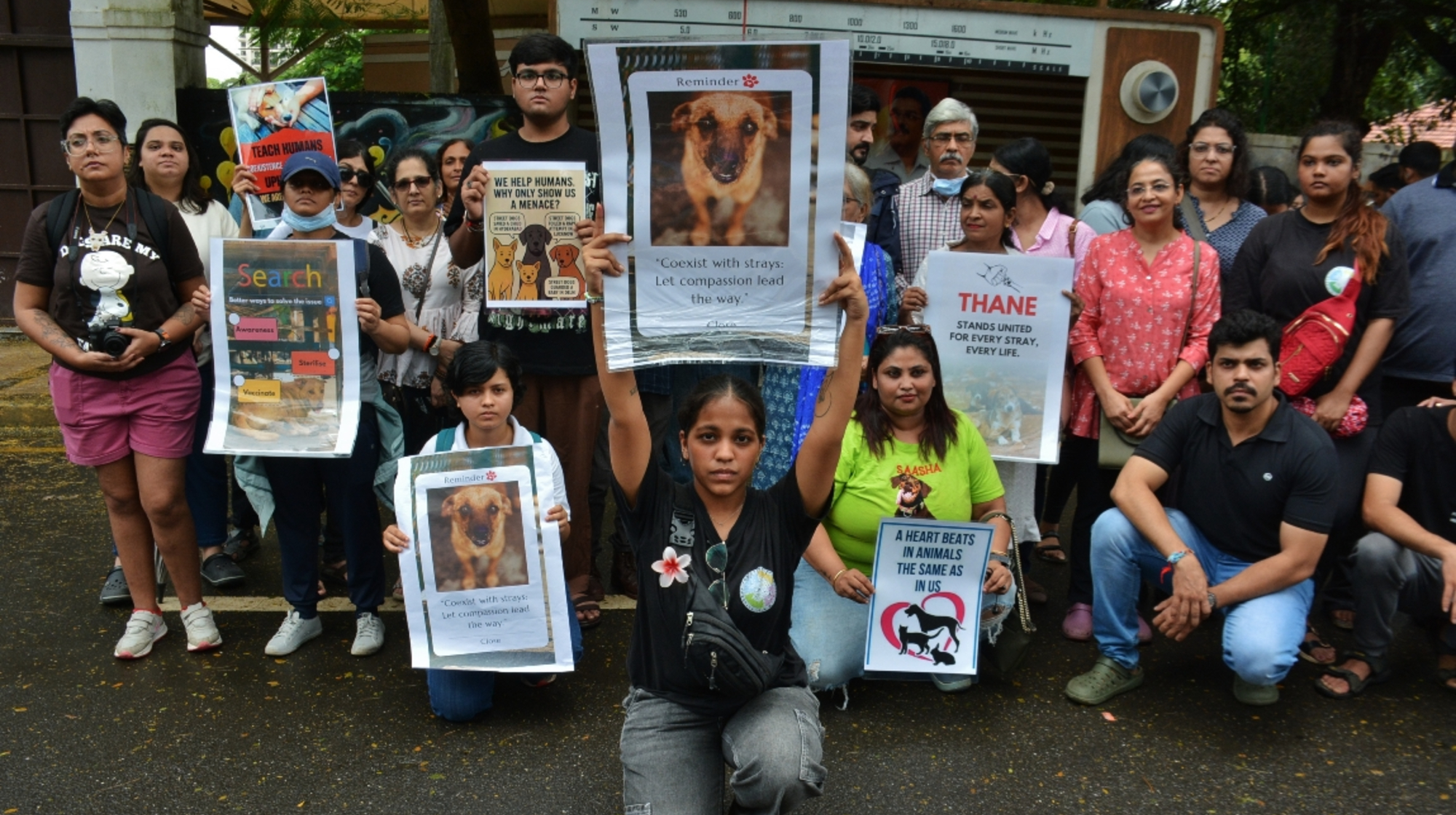Delhi's dogs earn Supreme Court reprieve
After an outcry from the public and animal rights activists, India's Supreme Court walks back a controversial plan to corral the city's stray dog population into shelters


A free daily email with the biggest news stories of the day – and the best features from TheWeek.com
You are now subscribed
Your newsletter sign-up was successful
Istanbul has its cats, Cape Town its penguins, and now, thanks to India's highest court, Delhi will keep its stray dogs. The country's top jurists have walked back a controversial plan to permanently round up the million or so stray canines estimated to call Delhi home. The about-face comes after the court earlier this month ordered Delhi's one million estimated strays be captured, sterilized, immunized and placed in local shelters to combat the "menace of dog bites leading to rabies." But prompted by mass pushback both online and in the streets, the Indian Supreme Court revised its ruling last week. Rather than being condemned to mass detention, captured dogs not displaying signs of rabies or acting aggressively will instead be released back into the urban wild.
Causing 'panic among animal lovers'
The court's initial order giving authorities eight weeks to round up all of Delhi's dogs was "aimed to control rising cases of biting," including "incidents involving children," said The Associated Press. Delhi sees some 2,000 "dog bite episodes every day," according to "some estimates based on hospital records." Regardless of bite rates, the order caused a "panic among animal lovers and welfare organizations," many of which argued the city has "nowhere near the infrastructure to house its vast stray population," said CNN.
With millions of stray dogs nationwide, India "accounts for 36% of the total rabies-related deaths in the world," said the BBC, citing World Health Organization data. Despite that threat, critics of the court's ruling cited feasibility as their concern. "Most Indian cities currently do not have even 1% of the capacity" necessary to "rehabilitate stray dogs in shelters," said animal rights activist Nilesh Bhanage to the outlet. The order was an "impractical, unscientific move" and a "shortsighted measure for a problem" in need of "long-term solutions," said environmental journalist Bahar Dutt on X.
The Week
Escape your echo chamber. Get the facts behind the news, plus analysis from multiple perspectives.

Sign up for The Week's Free Newsletters
From our morning news briefing to a weekly Good News Newsletter, get the best of The Week delivered directly to your inbox.
From our morning news briefing to a weekly Good News Newsletter, get the best of The Week delivered directly to your inbox.
Balancing 'animal welfare and public safety'
In its revised ruling, the Indian Supreme Court "suspended the 'catch-and-keep' plan," offering in its place a "more 'holistic' India-wide approach," said The Guardian. The new order will see stray dogs "sterilized, vaccinated" and "dewormed" before they are ultimately returned to the neighborhoods where they were initially captured.
The ruling also specified that canines "exhibiting aggressive behavior or infected with rabies shall not be released into public spaces," said Indian newspaper The Hindu. The order accordingly bans unregulated public feeding of stray dogs but calls for the establishment of "designated areas for feeding" across the country, said CNN.
By scaling back their initial order, India's Supreme Court made a "progressive step toward balancing animal welfare and public safety," said Rahul Gandhi, the leader of the Indian parliamentary opposition, on X. The court made a "very good decision," said Delhi Mayor Raja Iqbal Singh. "We all love street dogs, and we are all dog lovers."
#WATCH | On the Supreme Court verdict on stray dogs in Delhi-NCR, Delhi Mayor Raja Iqbal Singh says, "...We welcome the decision. This is a very good decision, and we will implement it 100%. The dog lovers and the NGOs also wanted the dogs to be sterilised and left. The… pic.twitter.com/Bo5OLMAOETAugust 22, 2025
Crucially, the court "has not clarified what an 'aggressive dog' is," said Reuters, citing an interview between the ANI news agency and former federal minister and animal rights activist Maneka Gandhi.
A free daily email with the biggest news stories of the day – and the best features from TheWeek.com
Rafi Schwartz has worked as a politics writer at The Week since 2022, where he covers elections, Congress and the White House. He was previously a contributing writer with Mic focusing largely on politics, a senior writer with Splinter News, a staff writer for Fusion's news lab, and the managing editor of Heeb Magazine, a Jewish life and culture publication. Rafi's work has appeared in Rolling Stone, GOOD and The Forward, among others.
